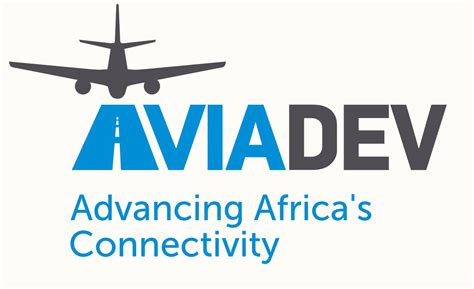
How Nigerian Government plans to resolve VAT administration crisis
How Nigerian Government plans to resolve VAT administration crisis
Sister authorities in Nigeria are at daggers drawn over whose authority it is to administer Value Added Tax (VAT).
VAT is an indirect tax which consumers pay as they consume VATable goods and services. This means that some goods and services like some medical and educational are VAT exempt.
Nigerian constitution fails to clearly define whose role it is to collect VAT. This lacuna has tiggered controversy as states which feels cheated in VAT sharing formula among Local Governments, States and the Federal Government are claiming the right to collect.
First shot was given to it by the Lagos State Government whose VAT proceeds account for about 80 percent of all VAT pool per month. Rivers State is currently taking legal means to stop the Federal Government’s Federal Inland Revenue Service (FIRS) from collecting VAT in the oil-rich state.
VAT pool account for a significant amount of FIRS collection in a year. For instance, by June this year, FIRS had collected about N1 trillion from VAT alone.
The Federal Government fears that if states take over the power to administer VAT, the Federal Government might lose a lot of resources while states, mostly from the South would be stronger economically than States in the North.
The Nigerian Government is currently giving thoughts seriously on how to stop States from taking over VAT administration, such as getting the National Assembly to quickly amend the constitution and clearly give the power to charge VAT to the Federal Government.
In its bid to retain the powers to collect VAT, FIRS wrote to the National Assembly, seeking the inclusion of VAT collection in the exclusive legislative list.
The federal tax agency is also requesting the federal lawmakers to approve for it, the establishment of the Federal Revenue Court of Nigeria.
A Federal High Court in Port Harcourt had on August 10 delivered a judgment restraining the FIRS from collecting VAT and personal income tax in Rivers State.
Although the FIRS had appealed the ruling, it however, failed to obtain a stay of execution it sought to prevent the state government from enforcing the verdict.
A letter signed by the Executive Chairman of the FIRS, Muhammad Nami, and dated July 1, 2021, was addressed to the Chairman of the Constitution Review who is also the Deputy Speaker of the House of Representatives, Idris Wase.
The letter with references number FIRS/EC/CWREP/0416/21/037 which was received in Wase’s office on July 2, was titled, ‘Request for sponsorship of a bill for the establishment of the proposed Federal Revenue Court of Nigeria and the insertion of Value Added Tax under item 58 of the exclusive legislative list’.
The federal tax agency specifically pleaded with the nation’s apex legislative institution, to vest, exclusively, all adjudication of tax disputes, including federal tax laws, companies income tax, petroleum tax, income tax, capital gain tax, stamp duty, VAT, taxes, levies and other laws, regulations, proclamations, government notices and rules on it.
Part of the letter read, “The Federal Inland Revenue Service further proposes for the amendment of Section 251 (1) (b) of the Constitution of the FRN 1999 (amended) by removing the exclusive jurisdiction of the Federal High Court only on anything connected or related to federal tax matters since same would be vested on the proposed federal revenue court.
“The Federal Inland Revenue Service also proposes for the insertion of value added tax immediately after Stamp Duties under item 58 part II of 2nd schedule of the 1999 Constitution of the FRN.
“The Federal Inland Revenue Service appreciates the maximum cooperation and support we are receiving from your good office on tax matters generally.
“This has boosted our morale and determination to do more for the government in tax revenue generation.
“The FIRS therefore wishes to further request that the House of Representatives consider the request for the establishment of the Federal Revenue Court.”
The FIRS in the letter, noted that Item 59 of the Exclusive Legislative List Part 1, 2nd Schedule to the Constitution of the FRN 1999 as amended vests the powers to make laws on anything related to tax matters in Nigeria, on the National Assembly.
It added, “Historically, the Federal Revenue Court was established by the promulgation of the Federal Revenue Court Decree No.13 1973.
“However, the enactment of Section 228(1) and 230(1) of the 1979 Constitution of FRN, renamed the Revenue Court to Federal High Court.
“This was further replicated by the Federal High Court Decree (amendment) 1991Cap (60l LFN, now referred to as the Federal High Court (amendment) Act 2005 Cap F12 LFN revised edition 2010
” This amended Section 7 of the Federal High Court Act (1991), conferred exclusive jurisdiction on the Federal High Court in relation to tax matters amongst others.
“Section 228(1) and 230(1) was further re-enacted as Section 251(1) (a) to (s), of the Constitution of FRN 1999.
“The FIRS hereby proposes for the insertion of Section 254(G) to 254 (L) in the 1999 Constitution of the FRN to provide for the establishment of Federal Revenue Court, the appointment of Chief Judge, power to make rules for the proceedings, the appointment of judges of FRC and the exclusive jurisdiction of FRC on federal tax matters.”




Recent Comments